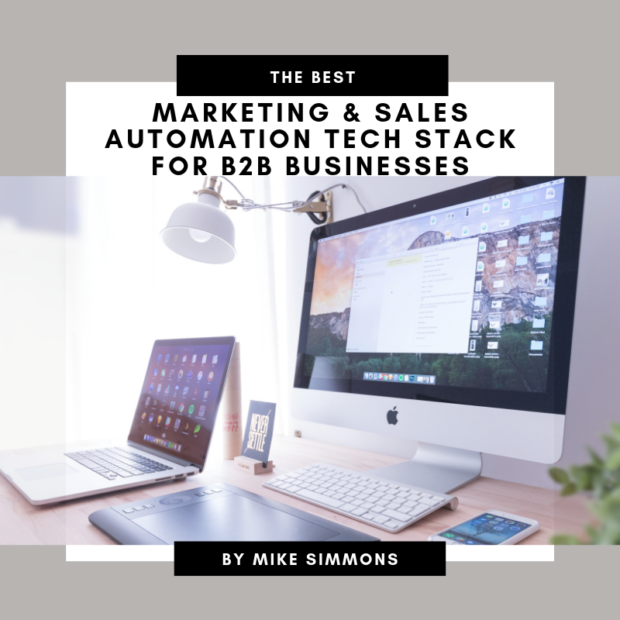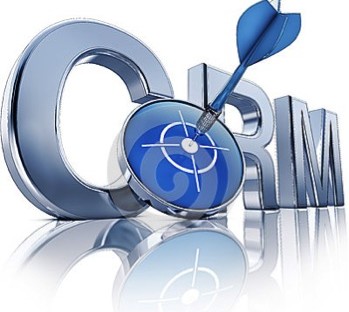Just about every company in America would publicly emphasize that they’re committed to revenue growth (this is more important than ever now). Yet simultaneously its common to try to cut corners and get cheap when it comes time to invest in tried and true resources that help them realize that goal. Further, these resources will easily pay for themselves and more by leading to significant ROI both monetarily and via efficiencies.
In 2021, I can’t believe companies still need to be convinced that they need things like CRM programs and marketing automation, but here we are.
And let’s get one thing out of the way before going any further. No, having a free HubSpot account doesn’t count as investing in a CRM program. It may be slightly better than a Google Spreadsheet (yes some solely use that as their “CRM”) but it’s still a lame attempt at best (that’s not to knock them, they have a fine platform if you’re willing to pay the fees to upgrade it).
Fortunately, there is an upside whether you have a CRM and marketing automation system or not. Regardless if you have none, a poor/dysfunctional one, or even one that’s working decently well, now is a great time to make it even better. Take the time, make the investment, and ensure it’s a priority to get dialed in and implemented now to lead to massive dividends later.
Anything worth doing is worth doing right, so I’ve put together a list of the best tech stack in the game to work synergistically and seamlessly whether you’re a solo entrepreneur or a $100 million company with hundreds of employees.
To set the ground rules this piece is predominantly focused on marketing and sales automation. There are plenty of additional angles to take to assist with ERP, HR/recruiting, etc. (if there’s interest I’ll gladly do a follow up post). Also, there are a variety of effective approaches and platforms to pull this off so in some cases I’ll include secondary and tertiary options. If your favorite tool is omitted it doesn’t mean I’m not a fan, just trying to make this easier in a world with a vast amount of options to avoid analysis paralysis. I’m not going to let that be your excuse not to take action and execute.
Ok here we go.
Communication
This is obvious, but your base starts with communication, so email, mobile device, etc. Personally, my preference is overwhelmingly an Outlook and iOS base. However, Gmail/Google Suite or Android are just fine. I use both Outlook/Gmail and both accounts are connected/integrated with my CRM. If you’re working in teams, adding Slack to the mix is worthwhile as well. Price: $5-$10 per user per month.
CRM
This is really the major component that ties everything together and is the key to making everything else in your business work. If you’ve read anything I’ve written about CRM’s you know my #1 preference right now is Zoho One. It does so freaking much for your company for the price that it’s absurd. Their tagline is: “The Operating System for Your Business” and it’s 100% true. There are literally 40 applications that go along with it that could easily eliminate much of what you’re using right now. But if you love your other platforms and want to keep them it also integrates with them all.
A few steps allows you to sync and keep track of all your communication with clients and prospects, ensure you follow up with leads who fill out contact forms or simply visit your website (yes it includes a heat map and website analytics) and so much more. I also use it for project management.
Almost on equal footing (albeit it comes with a much higher price tag) is Salesforce, followed by HubSpot. These are both great platforms, they just cost a whole lot more to license and don’t come with the extra bells and whistles that Zoho One does. Price: $30-$40 per user per month.
Social Media
This section will be brief, your company has got to have at least the following accounts: LinkedIn, Instagram, Facebook, and Twitter. If you want to add others to the mix more power to you, but this is the base. I use Zoho to manage, automate, and track my posting (which is included) but you could easily use Hootsuite too. Price: Free (Zoho) – $30 per user per month for Hootsuite.
Email Marketing
Another quick section: you need to be incorporating email campaigns into your marketing activities. Email isn’t dead, that’s a lie (neither is direct mail, but that’s for another time). This is one where you could get away with Zoho to manage it, yet I stubbornly have stuck with MailChimp. I love the platform, the company, and what it stands for and have remained loyal. You can start with a free account for under 2,000 contacts, I have more in my list, so I pay a monthly fee (the fee staggers based on your amount of contacts). Constant Contact is a fine option too. Both integrate with Zoho. Price: Free (Zoho) – $30 per month and up for MailChimp.
Contract/Proposal Management
If your company is like mine, you crank out a lot of proposals and contracts on a regular basis. While we customize each one there is still plenty of overlap and recurring content that we leverage often. Standardizing as much as possible with templates creates a HUGE advantage. It allows us to crank out much more in less time. Business is a numbers game, i.e. more activity leads to more volume, which leads to more sales and revenue. So being able to get more proposals and contracts out in a timelier fashion is going to make a tangible impact on your business alone. For this I use/recommend IntellyDoc. Adding this to your tech stack is going to make a major impact on your business. Price: Free (Freemium Model) – $150+ per month depending on your company’s situation.
Payment Processing
Not that your company is closing all this new business you’ve got to collect, right? I have an account set up with PayPal, Square, Stripe, Venmo, Zelle, Coinbase, and Gold Money to collect fees from clients. I recommend having them all nothing else in your business matters if you don’t collect the fees you charge. They all connect to your bank, which should connect to your bookkeeping platform, which then connects back to the CRM to tie in deal flow tracking and to assist with financial forecasting, etc. Price: Free aside from a percentage per transaction.
Bookkeeping
QuickBooks gets all the love, but I’ve been using Wave and it’s really great too (you’re probably sick of hearing this by now but Zoho has an application that comes with your Zoho One account too). QB integrates with Zoho, Wave doesn’t which is a minor annoyance, but I created a work flow to work around that.
Other recommendations:
Scheduling: Acuity is awesome to assist with scheduling meetings, demos, calls, etc. by allowing folks to see open times on your calendar and book appointments. They have a freemium model.
Ecommerce: Shopify.

